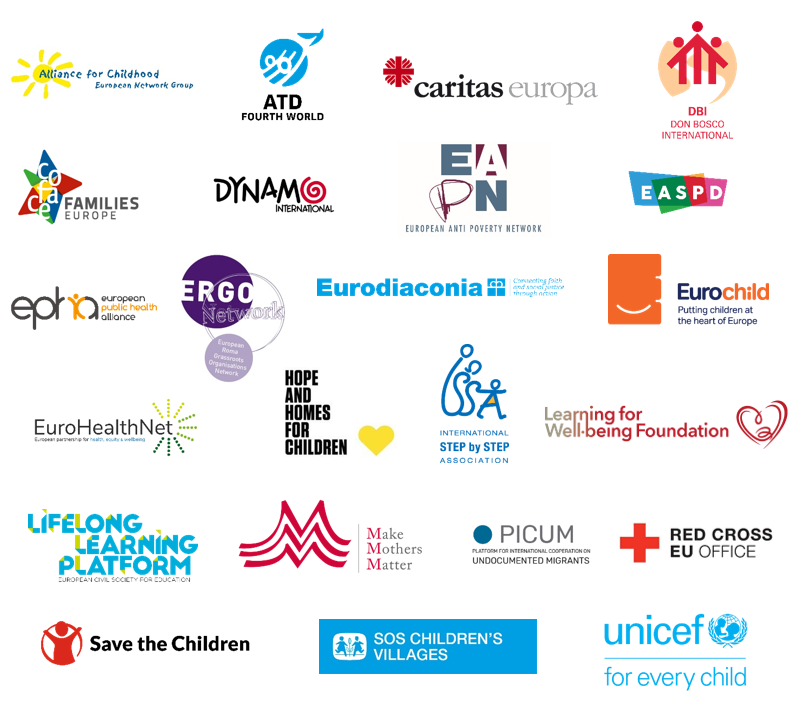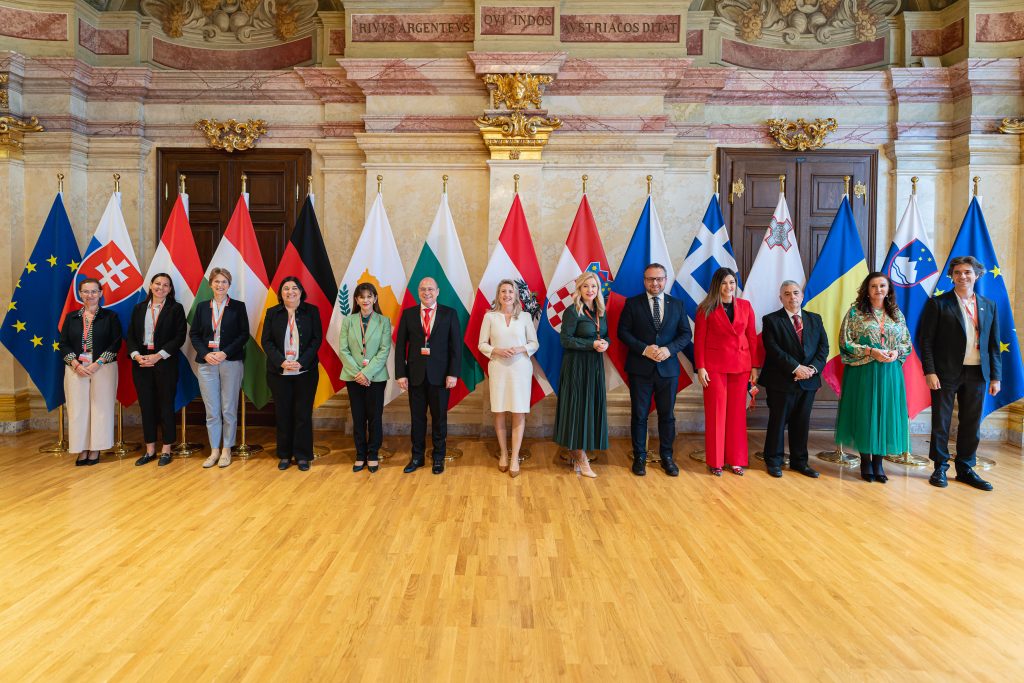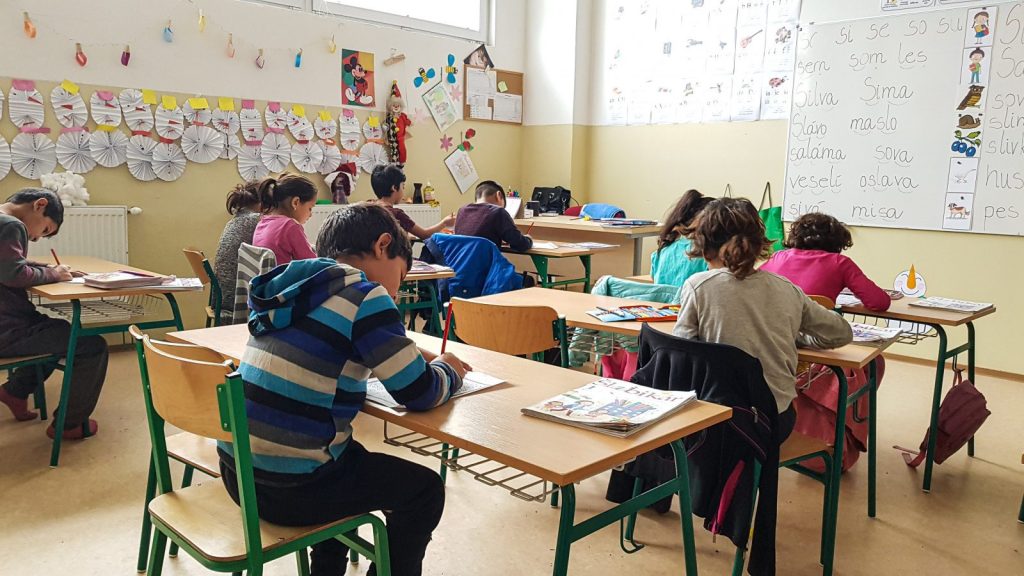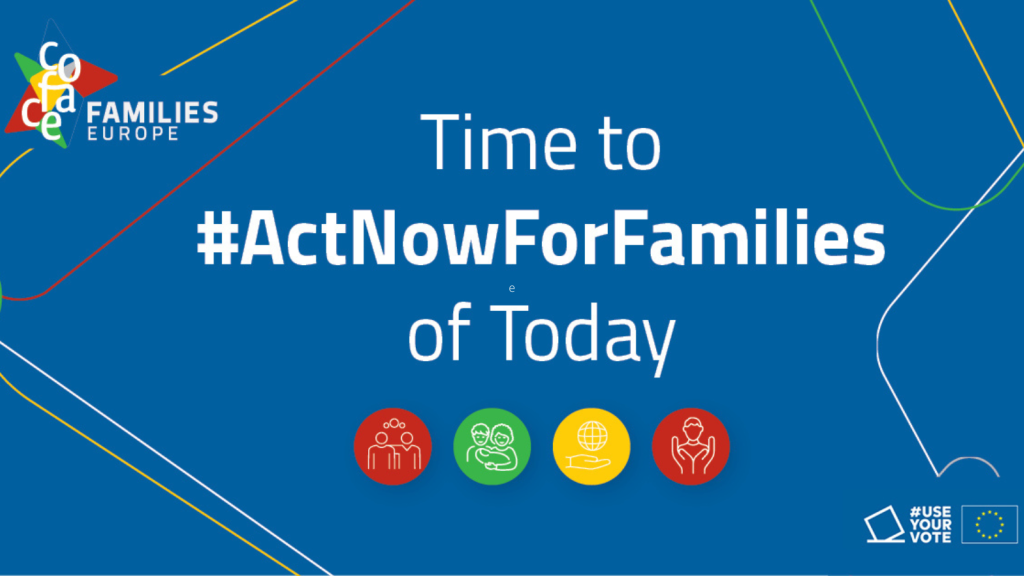On the 27th of May, EU and national leaders gathered in Porto to discuss the role of social policies in shaping the European project. With this statement, the EU Alliance for Investing in Children aims to stress that eradicating child poverty is an indispensable stepping stone in constructing a just and equal Social Europe for current and future generations.
Child poverty is a long-standing pan-European crisis. According to Eurostat data, from 2020 to 2021 over 200.000 more children in the EU were driven to the brink of poverty. This brought the total number of children at risk of poverty and social exclusion to over 19.6 million – or one in four. These figures will likely increase considering the compounding social emergencies witnessed in the last few years. While the situation varies from country to country, and some groups of children are even more exposed than others, the result is always the same; children’s rights are not respected, protected, or fulfilled.
Even temporary deprivation experiences can have devastating consequences for a child, lasting a lifetime, if not generations. In particular, the early years of a child’s life are crucial in determining children’s physical, mental, social, and emotional development. Inequalities are typically established at a very young age, negatively influencing their life-course opportunities, well-being, and health. Acting as early as possible is thus crucial in ensuring that each child can reach their full potential.
By adopting the European Child Guarantee, the EU has demonstrated its political commitment to break the cycle of poverty and disadvantage across generations. To secure its success, the priority now is to turn this commitment into tangible measures to eradicate child poverty.
We call on EU and national leaders to:
- Live up to their political commitment by submitting ambitious and comprehensive national action plans. As living documents that will remain in force at least until 2030, these plans should be regularly reviewed and updated, ensuring a rights-based, integrated, and multidimensional approach and a deep interconnection with the national, regional, and local scenarios they relate to.
- Capitalise on the Child Guarantee to reach and support the most vulnerable, racialised, and disadvantaged children, ensuring that all identified categories of children in need and their families have guaranteed access to the high-quality key services, where and when they need them.
- Ensure that national measures to curb child poverty are adequately funded by EU and national funds and support the European Parliament’s pledge to increase funding for the Child Guarantee as part of the upcoming Multiannual Financial Framework revision.
- Ensure the proper monitoring and evaluation of the Child Guarantee at both EU and national levels by setting clear, multi-sectoral, and comparable metrics, investing in efficient and effective data collection, and defining more specific targets.
- Ensure meaningful, continuous, safe, inclusive, and transparent participation processes with multi-sectoral stakeholders – such as children, CSOs, support services, parents, and carers – in implementing, assessing, and evaluating the Child Guarantee. Specific outreach practices are needed to ensure children listed as the Child Guarantee target groups and their families are involved.
- Ensure a successful and integrated interplay between the Child Guarantee, national frameworks and strategies, and the EU social and equality agenda, particularly in sight of the 2024 European elections. This includes the European Semester, the Recovery and Resilience Facility, the European Pillar of Social Rights Action Plan, the need for a more ambitious EU target on child poverty and a rights-based plan to secure a fair and socially just transition.
The EU Alliance for Investing in Children (Alliance) brings together almost 30 European and international networks sharing a commitment to end child poverty and promote child well-being across Europe. At a time when over a quarter of children in the EU are at risk of poverty and social exclusion, the Alliance provides expert support in the development of EU and national policies, legislation, and funding programmes in line with the European Commission Recommendation ‘Investing in Children – Breaking the Cycle of Disadvantage’ and all horizontal principles included therein. We are united by our commitment to a multidimensional, rights-based approach to tackling child poverty and promoting well-being.
Since the initial discussions on the possibility of creating a framework to support the most vulnerable children in the EU, the Alliance has ceaselessly advocated for the setting up a robust and comprehensive European Child Guarantee. After years of negotiations and evidence-based advocacy, we enthusiastically welcomed the EPSCO Council’s adoption of the Council Recommendation establishing the European Child Guarantee, which includes most of the requests and recommendations made by the Alliance.
The Alliance is now committed to ensuring that this unprecedented European framework will be translated into tangible national policies to support the most vulnerable children in all EU Member States.
Download the statement as a PDF
This statement was endorsed by:





